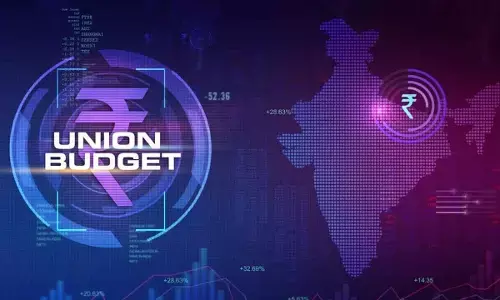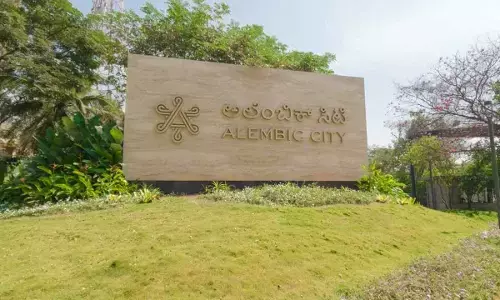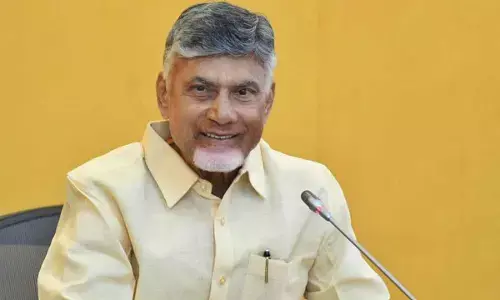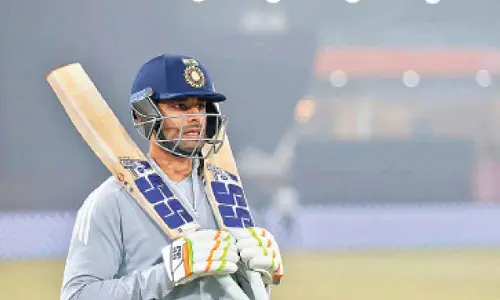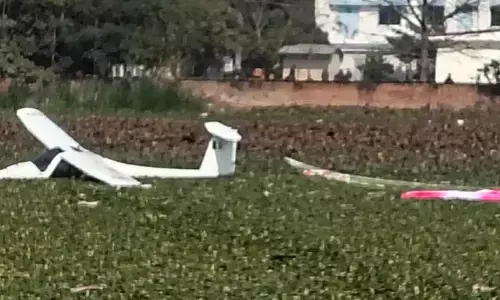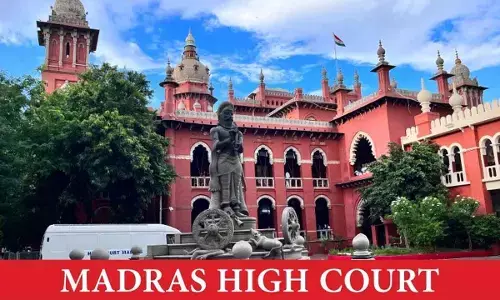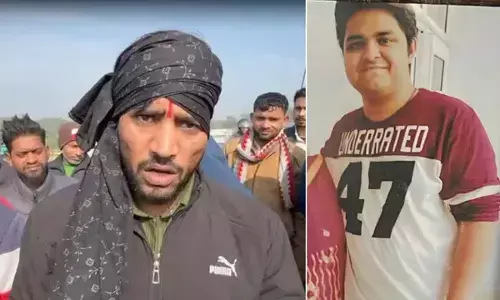Modinomics & demonetisation politics
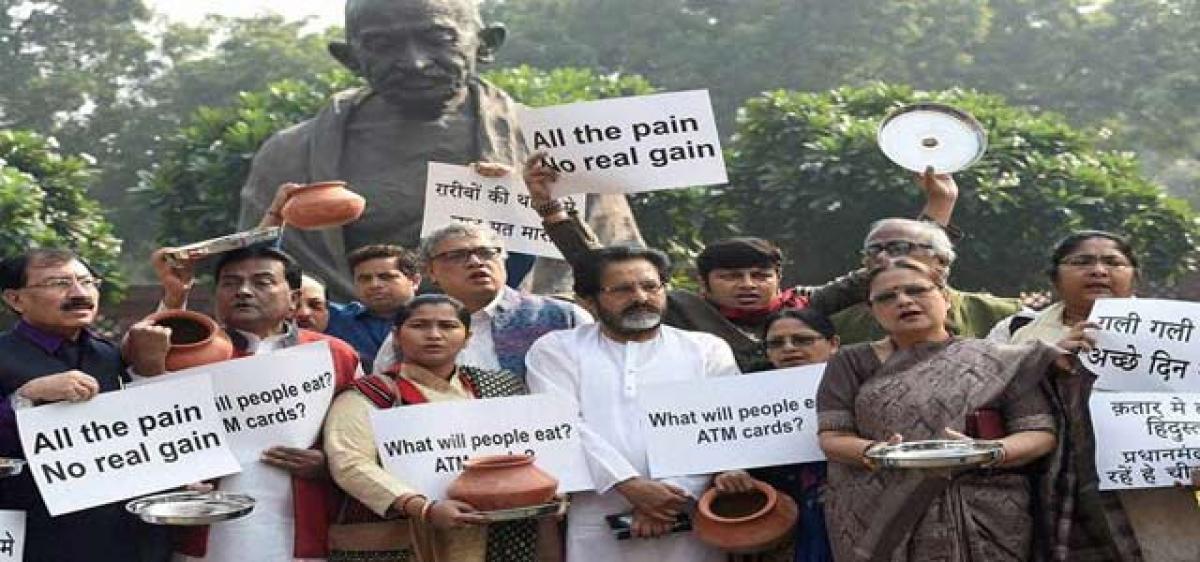
Prime Minister Narendra Modi’s announcement of demonetisation of higher value currency notes has created a peculiar situation for various political parties.
Prime Minister Narendra Modi’s announcement of demonetisation of higher value currency notes has created a peculiar situation for various political parties.
The aggressive brand management of the Prime Minister and his party has landed several political parties in a precarious situation unable to wriggle out of their political predicaments.
The BJP is trying to create a situation where choice is limited to either supporting demonetisation or be branded as harbouring black money.
Indirectly referring to opposition crusade against demonetisation, Modi says that scamsters are angry over his move.
This precisely reminds one of the situation during the US war on Iraq. The Bush regime asked the world to choose between the Uncle Sam and terrorism. In such a deliberately polarised situation, it requires a political courage to take a clear position.
While the people at large seem to be convinced of the positive intent of demonetisation in curbing black money, the chaotic scramble for cash and the unprecedented disruption of lives and livelihoods is a matter of concern. This dichotomy of situation is also acting on the responses of political parties.
Almost the entire Indian political spectrum often switches its political and ideological positions depending upon the mood of the people.
Black money and terrorism is an emotional plank; Modi reaped rich political harvest by raising the issue of black money during the 2014 polls.
But, the law of diminishing returns is playing up as precious little is done on the issue. Smelling the possible electoral impact of this emotional issue, Modi fired a salvo of demonetisation.
Two things happened. The great Indian Middle class despite daily travails has initially reacted positively towards Modinomics.
But, as the cash crunch continues to haunt, the middle class seems to be in a dilemma over perceiving the measure.
The ground reports suggest growing disenchantment of people with the after effects of demonetisation. The cash chaos would continue for some more months.
As the people move away from the emotional world and start looking at the tangible impact of demonetisation on curbing black money even as the chaos continues, there is always a possibility of political backlash.
Nitish Kumar said that Modi is riding a tiger. Several regional political parties known for their ideological pusillanimity still remain silent.
Jayalalithaa, though, wrote a letter last week to greet her party cadre, she did not mention anything about demonetisation.
Known for her unequivocal stand on many issues either with her friends or foes in politics, the radio silence observed by the AIADMK leadership is intriguing.
Her arch-rival DMK leader Stalin was quick to describe that his rival was terribly disconnected with what the people were passing through.
Perhaps, the ill-health of its leader could save the AIADMK from any possible impact of striking silence on this crucial issue.
The NDA ally Shiv Sena was much more vociferous in condemning the demonetisation. Shiv Sena even came out in support of Congress leader Ghulam Nabi Azad, who is under attack from BJP for drawing a comparison between the Uri terror attack casualties and the deaths after demonetisation.
“In the Uri attack, 20 jawans were martyred. Due to the demonetisation, 40 brave patriots have lost their lives (while standing in queues at banks to exchange demonetised notes),” Shiv Sena sharply comments in an editorial in its mouthpiece ‘Saamna.’
But, this uncharacteristic reaction of an ideological ally of BJP is more to do with party’s running feud with Modi and his party rather than the demonetisation per se.
Sena would continue to oppose anything and everything Modi does as the party is still not ready to digest the fact that the people of Maharashtra condemned it to the rank of a junior partner in the ruling combine.
However, BJP got unexpected support from its former ally and now an arch-rival, Nitish Kumar, who dreams of presenting himself as an alternative to Modi in Delhi in 2019.
This doesn’t stem out of any love for Modinomics or passion for demonetisation, but an attempt to further refurbish his image as a crusader against corruption.
Nitish’s strategy perhaps is to stand out as a sane voice as most of the non-BJP parties are vehemently critical of demonetisation.
Political pundits even sense a more intelligent strategy in Nitish Kumar’s stand. Political compulsions made Nitish ally with Lalu Prasad. But, JD (U) is uncomfortable with the mismatch between the clean image of its leader and the ‘dirty’ image of Lalu.
Still, political arithmetic keeps them together. The JD (U) is always worried of RJD leader’s political histrionics.
Nitish through his occasional support to BJP on such emotive issues at least can keep his ally, Lalu, in check.
But, in contrast, the JD (U) senor leader Sharad Yadav is taking an aggressive stand on demonetisation. This seems to be a deliberate game.
Nitish wants to exploit the clean image angle in the issue and Sharad Yadav wants to espouse the cause of the people caught in the chaos.
No tall leader of the opposition including Arvind Kejriwal, the man who emerged out of the anti-corruption movement, is supporting demonetisation.
Therefore, Nitish perhaps senses an opportunity in it by standing firm in supporting Modi on demonetisation.
In a rare political spectacle, leaders of seven political parties led by Congress met before the winter session of Parliament to chalk out a joint strategy on demonetisation.
Surprisingly, the CPM and the TMC were together. The YSR Congress Party which all along was lukewarm in opposing BJP at the Centre also joined the meeting.
The YSR Congress stance is more to do with Chandrababu Naidu aggressively promoting himself as the real author of demonetisation.
In fact, Naidu was, perhaps, the only political leader who has been openly advocating for a note ban, especially during the weeks preceding the announcement.
However, Jaganmohan Reddy seems to be in no hurry to encash on the public agony over cash chaos. He might be unsure for now as like many others unable to figure out how the public mood may pan out.
Interestingly, other opposition parties like SP, BSP and AAP that have strongly criticised the government on the demonetisation issue gave the meeting a miss, besides DMK, AIADMK and NCP.
Again, the political behaviour of all these parties is defined by politics rather than policies. The SP, BSP, AAP, AIADMK face Congress in the elections to be held soon in different states. They do not like to share the company of Congress.
The Congress leads the banner of revolt against the demonetisation. The Left critical stand is more ideological than related to practical politics of prevailing public mood on the ground .
Mamata always wants to be more reddish than her Left rivals in the land of dominant left consciousness. The TRS has officially decided to not to go with opposition on demonetisation.
This has been the case with TRS in Parliament all along. However, its leadership is upset over the sudden announcement.
Telangana Chief Minister KCR is worried over the fiscal impact of monetary contraction induced by demonetisation.
But, the TRS leadership calls demonetisation a great move, but still talks about the hardships of the people and the state government, owing to demonetisation.
The political strategy behind this cautious approach is clear. It doesn’t want to lose the positive mood of the people. Yet, it highlights people’s woes to capitalise on any antipathy on the issue.
The TRS can afford to take this position. The party was always friendly to central BJP, especially Prime Minister. It’s not part of NDA and, therefore, has no obligation to support it with a clean cheque.
It wants to keep its options open, though it may sound to be neither here nor there syndrome. The TRS, therefore, would neither wish to fully associate or disassociate with demonetisation.
But, Telugu Desam supremo and Andhra Pradesh Chief Minister N Chandrababu Naidu has a different situation to handle. He was one who openly advocated note ban.
He went to the extent of claiming patent over the decision. The TDP is part of the NDA and cannot escape from any possible negative sentiment too.
Thus, Naidu smelling the changing public mood started distancing himself from the authorship of present model of demonetisation. Naidu, therefore, is cautious in reacting to Modinomics.
He found fault with the introduction of Rs 2,000 note and was equally critical of the manner in which the whole situation is handled.
Thus, Naidu is very clear on his strategy of demarcating from BJP on the question of demonetisation, though he favors the move with several ifs and buts.
Thus, Modinomics interestingly manifests on Indian political landscape. On one hand, it saw a rare camaraderie among opposition parties.
Yet, it exposed the cracks in the opposition. However, the ruling NDA is more or less united behind the Prime Minister.








